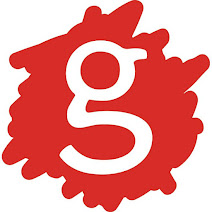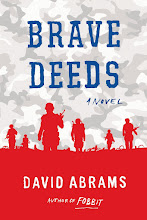My First Time is a regular feature in which writers talk about virgin experiences in their writing and publishing careers, ranging from their first rejection to the moment of holding their first published book in their hands. Today’s guest is Lisa Borders, author of The Fifty-First State, published by Engine Books. Her first novel, Cloud Cuckoo Land, was chosen by Pat Conroy as the winner of River City Publishing’s Fred Bonnie Award in 2002, and received fiction honors in the 2003 Massachusetts Book Awards. Lisa’s short stories have appeared in Kalliope, Washington Square, Black Warrior Review, Painted Bride Quarterly and other journals. Her essay, "Enchanted Night" was published in Don't You Forget About Me: Contemporary Writers on the Films of John Hughes. She has received grants from the Massachusetts Cultural Council, the Somerville Arts Council and the Pennsylvania Council on the Arts, and fellowships at the Millay Colony, Virginia Center for the Creative Arts, Hedgebrook and the Blue Mountain Center. She teaches at Boston’s Grub Street. More information on Lisa and her work is available at www.lisaborders.com
My First Writing Teacher/Mentor
Fifth grade could have been one of the worst years of my life. My father had died when I was nine, at the end of fourth grade; my teacher that year hadn’t been particularly sympathetic, and most of my classmates treated me with either indifference or hostility. This was the 1970s; nobody had talked to the other kids or prepared them for how to deal with a grieving classmate. During the months my father was ill and then after he died, I started eating everything in sight, and so I entered fifth grade heavier than I’d ever been, and feeling uncomfortably different from my classmates. And of course, I missed my father with a depth I wouldn’t fully appreciate until I was older.
After a difficult summer, I felt a trepidation when school started that fall that I’d never felt before. I’d always loved school, but that year, I wished I didn’t have to go. I was afraid my classmates wouldn’t be nice; afraid my teacher wouldn’t be nice. And then I met Mrs. Hill.
On the first day of class, we had to fill out information sheets about our parents--their names, where they could be reached in case of emergency. This was the kind of small thing that could nearly undo me--having to indicate that my father had died. For the space where I was supposed to write my father’s name, I wrote, “deceised.” I still remember the misspelling; I can still see the form. Later, after Mrs. Hill had had a chance to look over the forms, she took me aside.
“I’m sorry about your Dad,” she said. “I had the same problem. Mine died when I was thirteen.”
I hadn’t met anyone else whose father had died when they were still a kid. Up until that point, I’d had the odd sense that I was the only child such a thing had happened to. What did it say about me, that I was the only kid in the world whose father had died? It sounds silly now, but the world was so much smaller in those pre-therapy, pre-internet days. And so, when Mrs. Hill told me that her father had died, it changed everything. I wasn’t the only weirdo in the world whose father had died. There were others. The two of us, at least.
That alone would have made her special to me, but there was more--much more. Once she discovered that I loved to write, she became my first real reader, and my biggest fan and champion.
I’d started writing poetry in second grade, when I was seven. I know because the poem I wrote at that age--and got published in my grammar school’s newspaper--was entitled “My First Poem.” I kept all of my poems in a spiral notebook; by eighth grade, I’d filled every page and went through several more in high school. But it wasn’t something I told most people. Up until that point, only my mother knew that I wrote--but she didn’t often ask to read my poems, and I only occasionally offered.
Mrs. Hill learned about my secret poetry practice because of an assignment she gave us: to keep a “personal notebook.” We had to make an entry each night. The entry could be anything. For students who liked art, it could be a drawing. For others, it could be a brief story about their day. We could talk about a movie we’d seen, a book we’d read. At first, I didn’t know what to write, but soon, I started writing poems for my entries.
The part that I find truly amazing is that Mrs. Hill would write brief comments in our personal notebooks--every day. For the entire class. I don’t know how she did it. As the year went on, she went from simply complimenting my poems--this was, after all, an exercise largely designed for self-expression, not something to be graded--to offering feedback. I remember a poem where I broke the meter and rhyme in the last stanza; she pointed this out. Since I wasn’t familiar with those concepts, she brought me in a book that explained them. When I wrote a poem that went on for several pages, and had characters and dialogue, she suggested I turn it into a short story. As an adult, I would discover that fiction was my genre; Mrs. Hill was the first person to suggest the switch to me.
As the school year drew to a close, I wanted to give Mrs. Hill a special gift. I went through all of my poems and picked out the ten or so I thought were the best. I decided to call the collection “Moods.” My mother donated a dozen or so pieces of her best stationery for the cause, and I meticulously copied the poems in my best, fanciest fifth grade script. My Mom helped me punch holes in the margin, and we threaded gold cord through to hold the book together. This was my first book, and only one copy ever existed. Mrs. Hill’s smile when I gave her the booklet kept me warm all summer.
I wouldn’t find another teacher who took such a personal interest in my writing until I was in high school. But while I was still in grammar school, in sixth grade, seventh and eighth, I would visit Mrs. Hill between periods, or after school. I continued to show her my poems. And when I graduated from eighth grade, she gave me my own special gift: marble bookends, each with a carved dove affixed.
“You should take good care of those,” my Mom said later. “I think they were expensive.”
I still have them.
.jpg)














So glad you got the right cheerleader at the right time. Yay, Mrs. Hill. (And yay, Lisa! Beautiful essay, starting my day with tears and affirmation...)
ReplyDeleteThanks, Madelyn! She was truly an amazing teacher - I know I'm not the only one in the class who thought so.
DeleteI am so glad that the class sorting gods placed you in Mrs. Hill's classroom...
ReplyDeleteMe too! And I'm also grateful to be back in touch with Mrs. Hill - as a result of this essay!
ReplyDeleteI truly believe people are put in our path for a reason. I'm so glad you found each other.
ReplyDeleteIt's wonderful that the two of you are back in touch! Great story!
I loved reading this. The right teacher at the right time can make a world of difference.
ReplyDeleteHerbal medicine for herpes simplex..
ReplyDeleteWork Fast in 14 days,
Email (( R.buckler11@gmail.com )